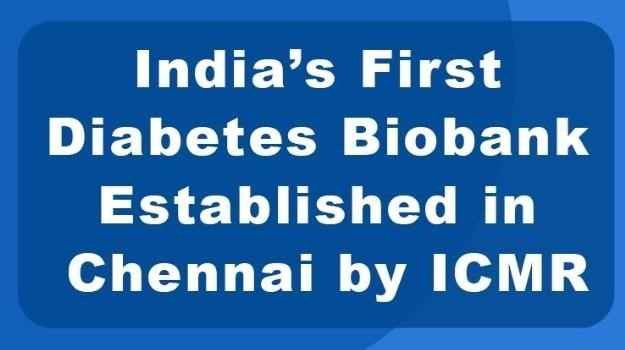India’s First Diabetes Biobank
Why in the news?
- India’s First: Diabetes biobank launched to advance scientific understanding of diabetes.
- Collects Samples: Includes blood specimens from diverse Indian populations for research into Type 1, Type 2, and gestational diabetes (GDM).
Key Highlights of the Biobank
- Chronic Disease: Diabetes disrupts blood sugar regulation, leading to severe complications like blindness, kidney failure, and heart disease.
- Epidemiological Study: Between 2008-2020, over 2 lakh individuals from urban and rural India were sampled to understand diabetes trends.
- Research Enabler: Helps explore genetic, environmental, and lifestyle risk factors, supporting targeted treatment and prevention strategies.
Significance of the Initiative
- Public Health: Aims to combat India’s growing diabetes burden and improve health outcomes.
- Global Impact: Establishes India as a leader in diabetes research, contributing to personalized medicine and innovative solutions.
Different Types of Diabetes
- Type 1 Diabetes:
- Cause: Autoimmune reaction that destroys insulin-producing beta cells in the pancreas.
- Onset: Typically develops in childhood or adolescence.
- Management: Requires insulin therapy for survival.
- Type 2 Diabetes:
- Cause: Insulin resistance or insufficient insulin production due to lifestyle factors and genetics.
- Onset: Common in adults but increasingly seen in younger populations.
- Management: Controlled through diet, exercise, medication, and sometimes insulin therapy.
- Gestational Diabetes (GDM):
- Cause: Develops during pregnancy due to hormonal changes affecting insulin sensitivity.
- Onset: Temporary, but women with GDM are at higher risk of developing Type 2 diabetes later.
- Management: Requires monitoring blood sugar, dietary changes, and sometimes medication.
- Other Specific Types:
- Monogenic Diabetes: Caused by a single gene mutation, such as MODY (Maturity Onset Diabetes of the Young).
- Secondary Diabetes: Results from other medical conditions, such as pancreatitis or medication use like steroids.
- Each type has distinct causes, risk factors, and management strategies, highlighting the need for personalized research and treatment
Sources Referred:
PIB, The Hindu, Indian Express, Hindustan Times




